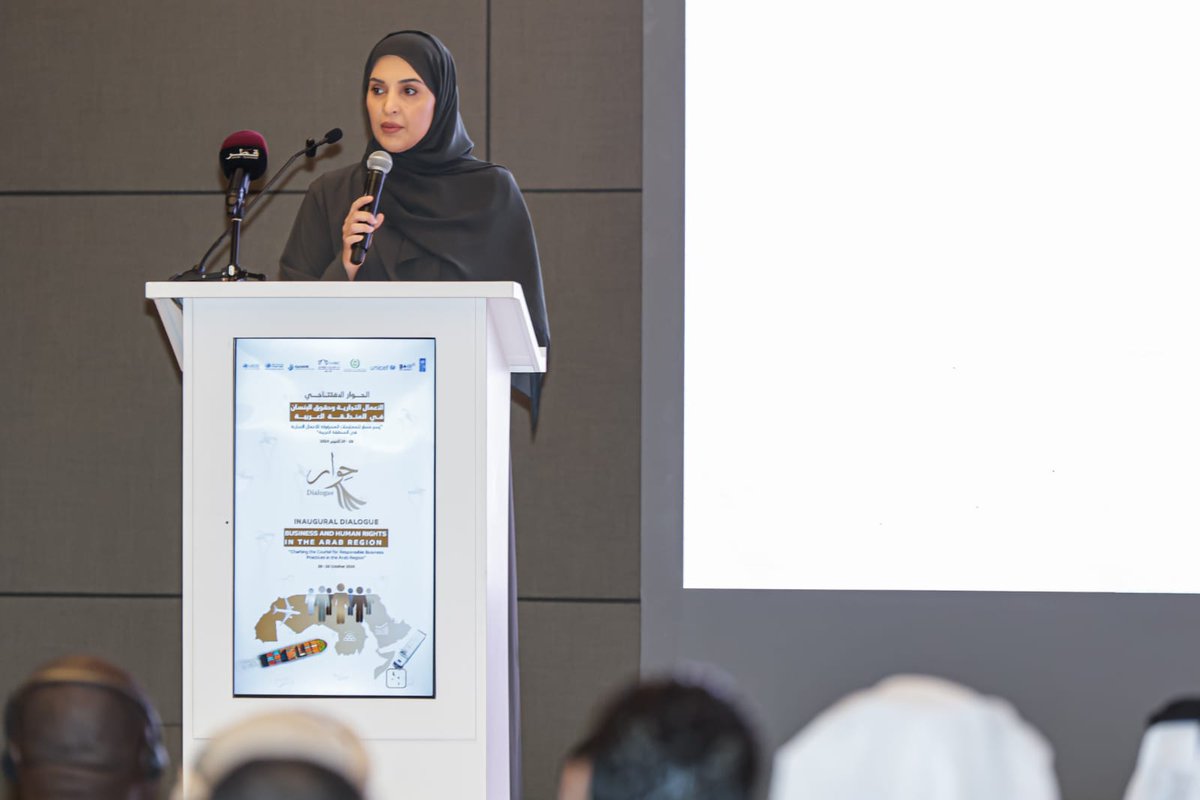It is essential to ensure that proper protections are in place to safeguard human rights in the face of economic transformations. Maryam bint Abdullah Al Attiyah emphasized the need to address pressing concerns regarding the environmental, social, and human rights impacts of business activities, particularly on vulnerable groups such as migrant workers and women. She highlighted the importance of implementing the United Nations Guiding Principles on Business and Human Rights to create a framework for efforts in the Arab region. National human rights institutions (NHRIs) play a crucial role in promoting and protecting human rights in the context of business operations, acting as bridges between governments, companies, civil society, and affected communities.
NHRIs contribute to facilitating dialogue, promoting accountability, and establishing a human rights-based approach to business operations. They provide guidance to states and companies, monitor and track the impacts of business activities on human rights, investigate and report violations, and hold states and companies accountable for human rights violations. NHRIs also represent and empower individuals and vulnerable communities by informing them of their rights and facilitating access to remedies for victims of business-related human rights violations. GANHRI works closely with regional networks of NHRIs, partners in the United Nations, and civil society to ensure that human rights are central to business activities.
The dialogue on business and human rights in the Arab region aims to chart a course for responsible business practices based on the universality and indivisibility of human rights. It focuses on key issues such as corporate human rights due diligence, rights holders’ access to effective remedies, and the development of national action plans on business and human rights. The dialogue also explores the role of SMEs in driving responsible business practices and the experiences of vulnerable groups such as women, migrant workers, people with disabilities, and displaced persons. Collaboration between stakeholders from civil society, government, and business owners is encouraged to develop national plans that serve human rights and address current challenges.
Professor Damilola S. Olawuyi emphasized the accelerating challenges faced by businesses around the world and highlighted the importance of focusing on economic diversification and best practices in human rights and business. The dialogue aims to provide a platform for discussing issues related to business and human rights, sharing different opinions, and promoting positive and constructive dialogue. The UN Guiding Principles on Business and Human Rights provide guidelines for governments and companies to support workers in ways that respect human rights and achieve sustainable development. The event underscores the importance of engaging in dialogue with openness, innovation, and commitment to address the challenges of business and human rights in the Arab region.
In conclusion, the dialogue on business and human rights in the Arab region serves as a crucial platform for stakeholders to come together to discuss and address pressing issues related to human rights and business operations. The involvement of national human rights institutions, civil society, government officials, and business owners is essential in promoting responsible business practices and protecting the rights of vulnerable groups in society. By implementing the United Nations Guiding Principles on Business and Human Rights, Arab countries can ensure that human rights are central to business activities, contributing to sustainable development, social equality, and peace in the region.











